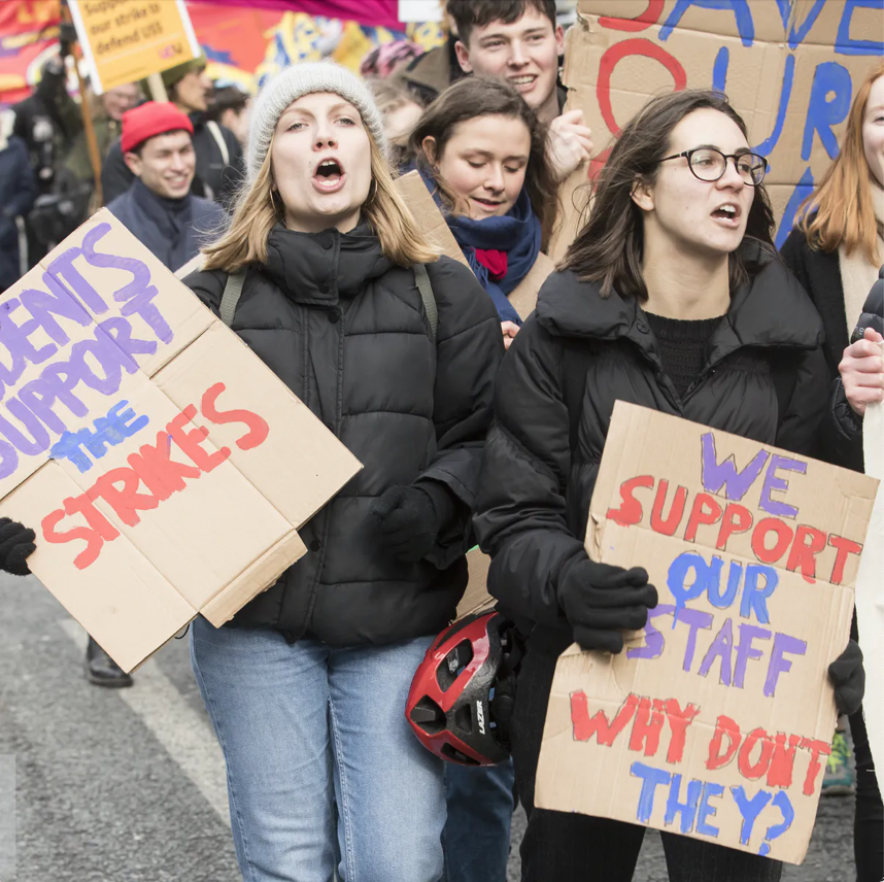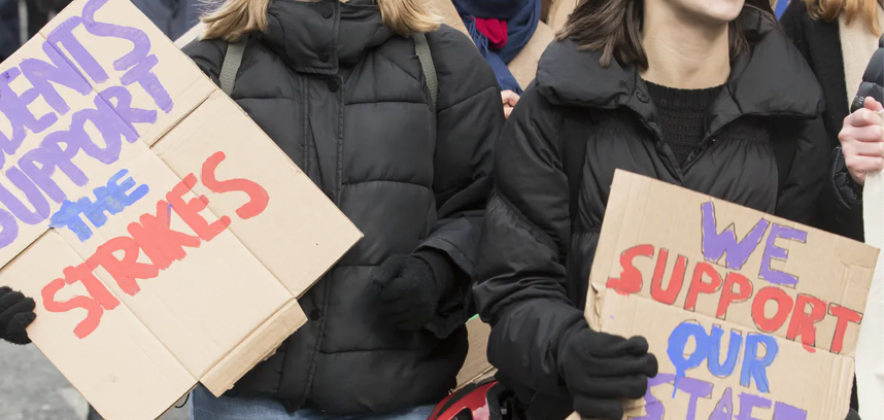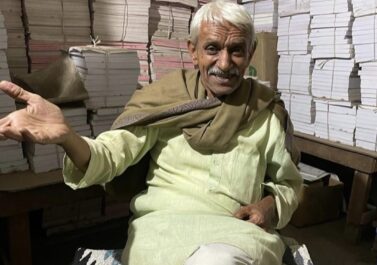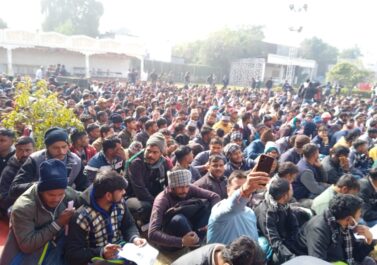
A comrade from Australia sent us this report on the local situation. Feel free to send us updates from your region…
Can you briefly describe the economic impact of the current crisis and give examples of attacks on wages and conditions of local workers by the bosses and the state?
Local impact has been muted by broad use of temporary guaranteed income programs to keep businesses employing workers (Jobkeeper), and temporary welfare payment increases to support unemployed people at the peak of lockdowns. Jobkeeper has largely delayed the full impact of the economic crisis by subsidising businesses both large and small. Even businesses that were going to go under even if the corona-crisis never happened were able to use Jobkeeper to temporarily stay afloat as “zombie firms”. Crucially, though, the majority of casual workers were not covered by Jobkeeper; the only casuals covered were those meeting very strict “long-term casual” criteria. The program ended on the 28th of March and the full impact will be seen in the coming weeks, but it will likely involve many lost jobs.
Businesses that could not access Jobkeeper for whatever reason largely passed on the pressure to their employees. Some were forced to take leave entitlements or unpaid leave during lockdowns, forced redundancies, forced to work shortened work hours or change locations of work, and some were still expected to work even when waiting for COVID test results. The rest just got sacked.
Workers were further encouraged to deal with the economic hit by cannibalising their own future, with the government deploying a program that allowed the early release of superannuation funds. When the program closed at the end of 2020, approximately three million people had withdrawn, in total, around $35-40 billion worth of their own retirements. The full repercussions of this won’t be seen for some time, but they will be severe, particularly for women, who tend to have substantially less super than men.
Unemployment benefits were increased during the worst of the crisis but are gradually being cut, bringing them back down to near pre-COVID levels. In addition, the drudge-work forced on the unemployed has been picked back up; after being put on hold, claimants will now be expected to meet their “mutual obligations” like attending interviews again in order to receive the payment. People will be expected to apply for increasing numbers of jobs every month. Those unemployed for more than six months will also be required to undertake a specialised “intensive training” for job skills.
Which new or oppositional political forces emerged as a response to the crisis and to the lockdown?
The political ground hasn’t shifted as much in Australia as it has in other countries due to the relative success of our political class in containing the virus. Anti-lockdown protesters only really became a force in Victoria, which was the only Australian state to have a prolonged second lockdown, thanks to a bungled hotel quarantine situation. It was primarily conspiracist-run and naturally oriented to the right-wing; it seemed to be mostly composed of the small businessmen and the like, mirroring the division found in other countries between between small bourgeois who find it hard to weather the storm and larger corporations that are able to push through and even profit.
In fact, it is likely that incumbent politicians will come out of this looking better than ever — Liberal/National PM Scott Morrison’s approval ratings have jumped quite substantially, and the Labor Party in Western Australia defeated the Coalition by a comically large amount:
Because of this, the Corona-crisis often takes a backseat to other concerns; in particular, the developing stoush with China. As the diplomatic collapse increasingly takes the character of a trade war, the current Australian government — based on a coalition of urban conservative Liberals and rural Nationals — finds itself split on how to move forward. Neither side particularly wishes to back down from its present hawkishness, particularly as Chinese hegemony begins to contest our own empire for influence over Oceania and South-East Asia. However, the Nationals — the traditional voice of Australian commercial agriculture — have flagged interest in a more protectionist approach to Australian trade, in opposition to the Liberals’ persistent free-tradeism.
Has the lockdown impacted workers or political groups when trying to organise protests? Has the form of repression changed? How do people react to this?
Left-activists generally took the approach of trying to push the limits of protest restrictions as much as they could, however the success of this is dependent on the amount of people they can mobilise. The BLM marches progressed largely unimpeded; in Sydney this was helped by a deus ex machina last-minute court decision declaring the rally legal, but there were so many people that the cops wouldn’t have been able to do much even if the court did not rule in the protestors’ favour.
Less popular causes do not fare as well, and activists have faced serious repression for protesting. A number of activists have been arrested and/or fined; one of our close comrades had their wrist broken by the cops. The strategic discussion on the left is largely centred around how best to challenge the restrictions, about how conciliatory or how confrontational we should be towards the authorities and the restrictions. As of April 2021, rallies tend to be able to proceed without much police opposition; it became hard for the government to try and block protests when tens of thousands were encouraged to attend football matches at the same time.
The reception of the protests vary and is hard to assess accurately. Suffice to say, it can elicit strong opinions from either side, but the majority of people either don’t particularly care, or cease to care once it leaves the media cycle.
What is the current theoretical and practical effort of your group in order to relate to the new situation of crisis? How could an international collaboration be useful for you in that regard? What are your concrete questions to comrades abroad?
This report was instigated by someone who is a member of Black Flag Sydney and the Red and Black Notes collective, who also participates in the Sydney Anarcho-Communist Reading Group. Generous assistance has been provided from two Brisbane-based libertarian socialists not part of any specific group. Sydney Anarcho-Communists primarily exists as a way to introduce new people to anarchism, to help current anarchists develop theoretically, and to bring together existing anarchists with a view to forming a more concrete organisation. Black Flag is a modest attempt at working on creating that organisation, whilst also recognising that we’re still finding our feet and developing.
Writing in a personal capacity — Sydney Anarcho-Communists is a very new formation and Black Flag is even newer. There is a sense that more discussion needs to take place amongst ourselves before launching more directly into workplace-oriented projects. At present, our work is primarily about participating in existing activist campaigns (like climate strike, refugee justice, gay rights, etc), trying to push them forward, connect them together, and bring in new layers of people.
I am personally in favour of “living” the politics a bit more, taking the sort of approach the Angry Workers do. I feel the limitations of our current ways of doing things quite acutely, as well as the general drawbacks of the current left milieu, but I am currently unable to do much to rectify things myself until I recover fully from a health issue I’m dealing with. Beyond that, there’s still the omnipresent challenge of finding people that are on board!
In terms of what we could get from greater international collaboration — I really can’t overestimate how important the sharing of information is. Not just theory either, but even the day-to-day reportage stuff that you’d find in workers’ papers and bulletins. Probably the most important thing we can do is to keep that information flow going, bouncing ideas off each other, reporting back on what works and what does not, identifying similar patterns in the class struggle in our own countries, seeing where they link up.
For instance, perhaps we could see some similarities in the way state multiculturalism and the smothering layer of “community” middlemen works in both Australia and the UK, or perhaps working with Indian comrades to understand the sorts of class dynamics at play among the Indian migrants who come to Australia, and whether they could potentially be used as a “bridge” between workers in the first and third worlds.
As well as that, there is of course the possibility of mutual support, even if on a smallish scale; for example if workers in a Hyundai factory in Hyderabad go on strike, perhaps we could try and get information about that to Hyundai workers here, or at least try and raise some sort of a ruckus outside Hyundai Australia HQ? I have no idea if there actually is a Hyundai factory in Hyderabad but you know what I mean.
Two case studies
Changes in tertiary education: Australian universities entered into a serious financial crisis when international travel wound up and borders shut down. The universities’ business model had been built on high-paying international students, and once that stream dried up, so did the $3-4.5 billion in fees, rents and so on they provided. As expected, the universities laid off tens of thousands of workers. A preliminary sector-wide attempt by the National Tertiary Education Union to negotiate around the offer of “voluntary” pay cuts was rejected by the bulk of its membership, who mobilised significantly to reject such a strategy, but the union persists with similar approaches at individual universities.
Whilst some often take a “who cares” attitude to the changes in the university sector, they will have a greater impact on the outlook of the working class than some realise. Most workers are invested in the education system because it represents one of the few avenues of upward class mobility: most workers would like their children to go to university and get a nice respectable job. If a university degree no longer guarantees well-paying employment in the manner it used to, then it can be expected that the outlook of the working-class will change.
Engaging with student struggle in this area can be difficult for the left, though it rarely admits it. It can often veer into a kind of conservative nostalgia (“universities should be about learning for the sake of learning again”) or middle-class entitlement (“I have an expensive degree, I don’t deserve to be working this casualised job to make ends meet, I should be a lecturer”). This is intensified by the government’s particular approach, which is to nearly double the cost of arts degrees while reducing the costs of “practical” degrees like agriculture, again provoking resentment towards arts students, putting these people in the awkward position of having to justify their course of study and career trajectory.
As a result of these deteriorations in conditions, more and more students will feel financial squeezes, and more and more will be forced to work longer and harder. When I was doing my social work degree, we were made to do two four-month long, nine-to-five, Monday-to-Friday unpaid placements, alongside a massive stack of schoolwork. Had I not been living at home, it would have been impossible; I know a number of other students that were forced to drop out or delay their placement for another year or two while they saved up enough cash. I know a few people that lived on their own and essentially survived on about three or four hours sleep, in between working and studying non-stop.
Already the majority of students have to work and pay rent; this proportion will only increase. This raises increased opportunities for drawing in people based on the collective experience of being exploited, not simply because they have the “right ideas”; there’s real potential here to overcome the usual sort of activist-sect recruitment that leftists tend to specialise in on campuses. We’re relatively good at drawing in people based simply on political agreement, but comparatively bad at drawing them in based on who they are in functional terms, and what purpose they serve — for their manager at Nandos, their useless landlord, the faceless university bureaucrats, their future bosses; but also for their coworkers, roommates, fellow students, and for the wider working class.
Immigrant labour: as with most western developed economies, the Australian economy involves a significant amount of immigrant labour. Though immigrants make up a significant proportion of both the working and middle-classes in Australia generally, there is no sector where this is more obvious than in agriculture.
Australian agriculture is broadly dependent on migrant labourers working as farm-hands, sheep-shearers, pickers and so on; these groups are severely exploited. The international travel restrictions triggered by the COVID-crisis have led to an immense labour supply shortage. Enormous amounts of produce have been left to wither on the vine due to a lack of workers to pick them; the National Farmers’ Federation estimates the losses have been worth around $43 million so far.
The government has allowed the entry of temporary migrant workers from Pacific Island countries to pick fruit; such programs will continue, but the prospect of farmers writing off the entire growing season — as they may do in instances of drought or floods — remains. Of course, one can’t overestimate the significance of this. Despite the labour shortages, profits are increasing and the 2020-21 period saw farmers reap $66 billion, the highest amount on record. Nevertheless, there’s still something interesting to explore here.
The response from the union that nominally covers agricultural workers, the AWU, has been to simply (and rather pointlessly) demand that employers hire Aussies instead of migrants. The union quite rightfully points to the fact that the workers’ visa status facilitates their exploitation, but instead of pressing for the easing of visa conditions, regularisation of status (eg) they will simply demand (in senate submissions and in the media, not on the picket line…) that Aussies be hired first.
The Australian government has attempted to mobilise citizens — primarily young Australians in their late teens/early twenties — to go and pick fruit for a season, sweetening the deal with subsidies and grants (including direct payments of up to $6000, according to reports). They’ve largely been a dismal failure, however, with only about 500 people jumping in to fill a 26 000 person gap.
There’s an undercurrent of “well, the Aussies are lazy” among both farmers and some of the migrant workers themselves. The Australian left accurately responds that the jobs are hard (particularly in the Australian summer), the pay often very poor (you’re paid piece-rate on most farms, intensifying the difficulty of the job) and the bosses often ratbags (sexual harassment of female workers is a major issue). At the end of the day, why would a young person in the city abandon support networks of family and friends, uproot their entire life and move temporarily to work a job that sucks and doesn’t pay that well? Particularly when there are still jobs going in the city!
The Australian left is right to point this stuff out, but its primary weakness is that it has little ability to influence things and tap into the latent collective power the produce-pickers currently hold. Instead, the workers are portrayed as hapless victims; in such an environment, it becomes doubly easy for bastards like the AWU to call for the ending of migrant exploitation by simply deporting the migrants and hiring Australian citizens, who are presumably inexploitable. The labour shortage could be used as tremendous leverage in class struggle, but there are few attempts to try and cohere together the various workers and push forward the lower-level struggle that no doubt already exists on these farms.



